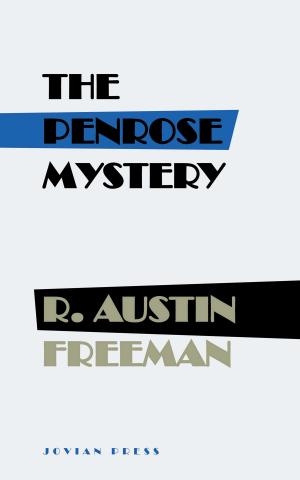| Author: | Lionel Allshorn | ISBN: | 9781537807218 |
| Publisher: | Jovian Press | Publication: | November 9, 2016 |
| Imprint: | Language: | English |
| Author: | Lionel Allshorn |
| ISBN: | 9781537807218 |
| Publisher: | Jovian Press |
| Publication: | November 9, 2016 |
| Imprint: | |
| Language: | English |
THE arrogant and defiant assertion that man is the supreme controller of his own destinies can hardly be applied, even by the most rebellious intelligence, to those mortals who rule over the kingdoms of the world. However great the personality of a monarch may be, the success or failure of his reign and the magnitude of his power are governed by the temper and tendencies of his age. Our own Henry VIII owed the enjoyment of his absolute authority not primarily to his profound sagacity and dominating will, but to the fact that the men of his century were eager to secure the peace and order that a benevolent despotism brings in its train. And the unhappy Charles was the victim, not so much of his own unstable mind and wavering purpose, as of the gradual revulsion of feeling in a nation which, grown strong and self-confident under the good governance of the Tudor dynasty, was now eager to free itself from the controlling power which had led it into the haven of peace.
Amid the countless examples which History furnishes of this subjection of kings to circumstance, there is none more striking than the career of the Emperor Frederick the Second. This magnificent prince, whom his own contemporaries regarded with amazement and hailed as the "Wonder of the World," and whom a historian of our own age has signalised as "the most gifted of the sons of man; by nature the more than peer of Alexander, of Constantine and of Charles,"1 is denied by posterity the title of "Great" which has been frequently bestowed upon lesser men. His enlightened mind, his energy, his strength and his genius, should have resulted in a reign of a glory rarely paralleled in the history of mankind. Yet through the heritage of strife to which he succeeded, through the formidable power, the overweening ambition and the implacable hatred of the Papacy, he was denied the part of a Builder and compelled to do the work of an architect who seeks to maintain a crumbling edifice and uphold it against the assaults of time. Throughout his life he was occupied in defending the rights of the Empire against the power that assailed it, and thus he was prevented from that work of construction which History demands of those whom she will honour with the verdict of greatness.
In order to comprehend Frederick's position and the power and pretensions of his enemy, it is necessary to recall to mind the development of the Mediæval Empire and the Papacy, and the gradual enmity that arose between them. In the year 476 the throne of the Western Empire became vacant through the deposition of Romulus Augustulus by Odoacer, who sent the Imperial insignia to his patron, the Eastern Emperor, at Constantinople. For over three centuries there was no Emperor at Rome, until there arose in the West a giant whose power qualified him to fill with dignity the ancient throne of the Cæsars. Pippin, King of the Franks, had defended the Pope of Rome against the Lombards and had bestowed certain rich lands on the spiritual power. In 768 Charlemagne succeeded Pippin and extended his sway over many of the nations that had once acknowledged Rome as their master, converting reluctant pagans by the argument of the sword. In 800 this conqueror of the heathen appeared in Rome to rescue the Pope from a hostile faction of the populace. In admiration for his militant Christianity and in gratitude to his house, Leo III crowned him with the Imperial Crown in the Church of St. Peter and proclaimed him Cæsar and Augustus...
THE arrogant and defiant assertion that man is the supreme controller of his own destinies can hardly be applied, even by the most rebellious intelligence, to those mortals who rule over the kingdoms of the world. However great the personality of a monarch may be, the success or failure of his reign and the magnitude of his power are governed by the temper and tendencies of his age. Our own Henry VIII owed the enjoyment of his absolute authority not primarily to his profound sagacity and dominating will, but to the fact that the men of his century were eager to secure the peace and order that a benevolent despotism brings in its train. And the unhappy Charles was the victim, not so much of his own unstable mind and wavering purpose, as of the gradual revulsion of feeling in a nation which, grown strong and self-confident under the good governance of the Tudor dynasty, was now eager to free itself from the controlling power which had led it into the haven of peace.
Amid the countless examples which History furnishes of this subjection of kings to circumstance, there is none more striking than the career of the Emperor Frederick the Second. This magnificent prince, whom his own contemporaries regarded with amazement and hailed as the "Wonder of the World," and whom a historian of our own age has signalised as "the most gifted of the sons of man; by nature the more than peer of Alexander, of Constantine and of Charles,"1 is denied by posterity the title of "Great" which has been frequently bestowed upon lesser men. His enlightened mind, his energy, his strength and his genius, should have resulted in a reign of a glory rarely paralleled in the history of mankind. Yet through the heritage of strife to which he succeeded, through the formidable power, the overweening ambition and the implacable hatred of the Papacy, he was denied the part of a Builder and compelled to do the work of an architect who seeks to maintain a crumbling edifice and uphold it against the assaults of time. Throughout his life he was occupied in defending the rights of the Empire against the power that assailed it, and thus he was prevented from that work of construction which History demands of those whom she will honour with the verdict of greatness.
In order to comprehend Frederick's position and the power and pretensions of his enemy, it is necessary to recall to mind the development of the Mediæval Empire and the Papacy, and the gradual enmity that arose between them. In the year 476 the throne of the Western Empire became vacant through the deposition of Romulus Augustulus by Odoacer, who sent the Imperial insignia to his patron, the Eastern Emperor, at Constantinople. For over three centuries there was no Emperor at Rome, until there arose in the West a giant whose power qualified him to fill with dignity the ancient throne of the Cæsars. Pippin, King of the Franks, had defended the Pope of Rome against the Lombards and had bestowed certain rich lands on the spiritual power. In 768 Charlemagne succeeded Pippin and extended his sway over many of the nations that had once acknowledged Rome as their master, converting reluctant pagans by the argument of the sword. In 800 this conqueror of the heathen appeared in Rome to rescue the Pope from a hostile faction of the populace. In admiration for his militant Christianity and in gratitude to his house, Leo III crowned him with the Imperial Crown in the Church of St. Peter and proclaimed him Cæsar and Augustus...















